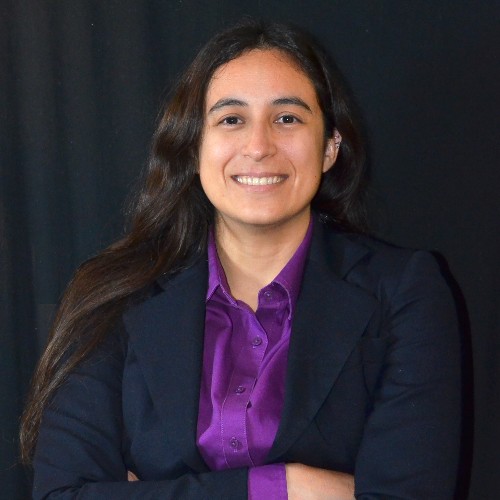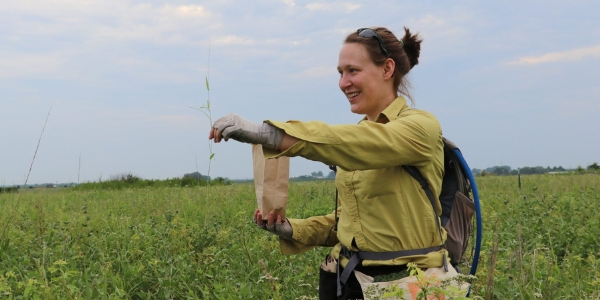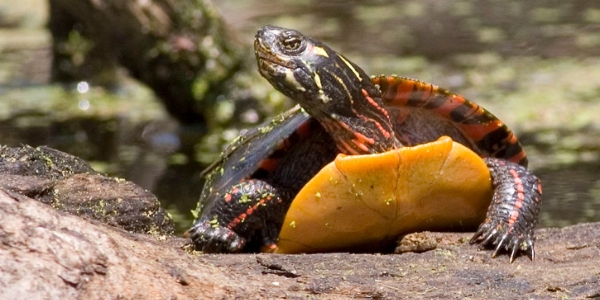1855 Professorships: A new era of innovation and excellence
At Michigan State University, the newly launched 1855 Professorships program, named for the year MSU was founded, has recruited its first cohort of scholars who are taking bold strides to address some of society’s most pressing challenges. Created by the Office of the Provost, the program brings together 10 faculty members with one purpose: advancing MSU’s commitment to diversity, equity and inclusion while elevating the university’s academic and research excellence.

By studying parrots and songbirds, Grace Smith Vidaurre is using a data-science perspective to address questions spanning ecology, evolution and neuroscience. An assistant professor in Data Science for STEM, Vidaurre’s lab is affiliated with the departments of Integrative Biology and Computational Mathematics, Science and Engineering, as well as the Ecology, Evolution and Behavior program.
“My 1855 Professorship is a unique position that supports a positive feedback loop between biology and applied data science,” Vidaurre says. “Throughout my academic career, my most creative and productive experiences have been when I work and think at the intersection of biology and data science. I am very excited for the continued research, new research directions and training opportunities for students that my interdisciplinary position will facilitate in the longer-term.”
Last fall and spring, after a call for proposals and thorough hiring process, MSU welcomed these 10 faculty members across multiple departments and colleges. The initiative is one step the university is taking to become a national leader in increasing diversity, promoting inclusion, ensuring equity and eliminating disparities.
The work of these scholars is as varied as it is inspiring. One faculty member is investigating and addressing how unequal access to green spaces impacts public health. Another uses a data-science perspective to address questions spanning ecology, evolution and neuroscience. Others are diving into the power of media representation, exploring how narratives shape public perceptions, identity and even political change. And that’s just the beginning — other projects span issues from health disparities among racial and ethnic communities to preserving local Indigenous cultural practices.
“We are proud of the work this inaugural cohort has already achieved, individually and collectively, in advancing MSU’s diversity, equity and inclusion objectives; enhancing collaborations campuswide; and fostering new partnerships,” says MSU Interim Provost Thomas Jeitschko. “These 10 cross-disciplinary scholars have contributed to not only the communities and cultures of their departments and colleges, but also to the university community writ large, helping to ensure equity and eliminate disparities on campus and beyond.”
The professorships were developed to form a cross-disciplinary group of professors to work together to advance MSU’s DEI objectives, foster new partnerships and do what Spartans do best: enhance collaborations campuswide. And while the first cohort is already on campus, a new recruitment cycle is currently underway to search for the next professors who will help advance the mission.
As the cohort of 1855 Professors grows, each faculty member will be able to contribute and strengthen others’ areas of research and teaching.
“On a personal and professional level,” says Blaire Morseau, assistant professor in the Department of Religious Studies in the College of Arts and Letters, “the structure of the 1855 Professorship has allowed me more space and support for research than many other academic appointments. In the past year, I released one edited volume, finalized my forthcoming monograph, produced several articles and chapters in edited volumes and found time for a host of other service work that is meaningful to me as an Indigenous woman scholar.”
Read the full story on all scholars in MSU Today.



